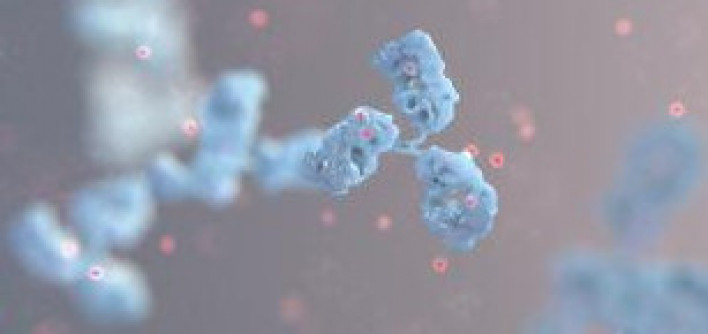The presence of antibodies that target one of the body’s own proteins was associated with severe infections that typically only occur when a person’s immune system is suppressed, based on a multi-cohort study of blood samples from more than 1,000 people. This study suggests autoimmune processes could be involved in the development of immunodeficiency in adulthood.
The research was led by scientists in the Immunopathogenesis Section of NIAID’s Laboratory of Clinical Immunology and Microbiology (LCIM) and published in the New England Journal of Medicine.
Antibodies play a critical role in the body’s response to infection and injury, but some people have “autoantibodies” that target the body’s own cells and organs, resulting in autoimmune diseases and conditions. This study centered on the role of antibodies that target the body’s own inflammatory cytokines, proteins that communicate with other cells to prompt the body to fight infection. Only a few anti-cytokine autoantibodies have previously been implicated in promoting enhanced susceptibility to certain severe infections.
Interleukin-12 and interleukin-23 are related cytokines that share a common structural feature and function similarly to influence the generation of interferon-gamma (IFN-gamma), a protein involved in immune system responses. Interleukin-23 is known to control inflammation in tissues such as the skin, lung, gastrointestinal tract, joints, and brain.
Prompted by an observation that a person with Burkholderia gladioli—a rare bacterial infection—had detectable antibodies to both interleukin-12 and interleukin-23, scientists investigated the prevalence of anti-interleukin-23 antibodies in people with known anti-interleukin-12 antibodies, only half of whom experienced opportunistic infections, meaning infections that tend to affect only compromised immune systems. They found anti-interleukin-23 antibodies among the half that experienced opportunistic infections.
Subsequently the team examined the blood from people participating in several cohort studies for the presence of anti-interleukin-23 antibodies, examining its association with thymoma (a tumor in the thymus associated with autoimmunity and immune deficiency), rare mycobacterial, bacterial and fungal infections versus common viral infections. The presence of anti-interleukin-23 antibodies was associated with severe, persistent opportunistic mycobacterial, bacterial, and fungal infections, but not with COVID-19. The strongest association to such infections was found in people who also had thymoma.
According to the authors, a comprehensive approach to autoantibodies against cytokines is needed to understand their role in both the source and the severity of infections.
An editorial accompanying the publication suggests that these findings should prompt the design of new diagnostic tests and therapeutic approaches based on anti-interleukin-23 antibodies for people with rare and severe infections of unknown cause. This research represents an advance in the core mission of the LCIM Immunopathogenesis Section, which has contributed key evidence about the role of IFN-gamma in human immunity for decades.
This NIAID Now blog post was published by the National Institute of Allergy and Infectious Diseases on May 31, 2024.







Comments
Comments